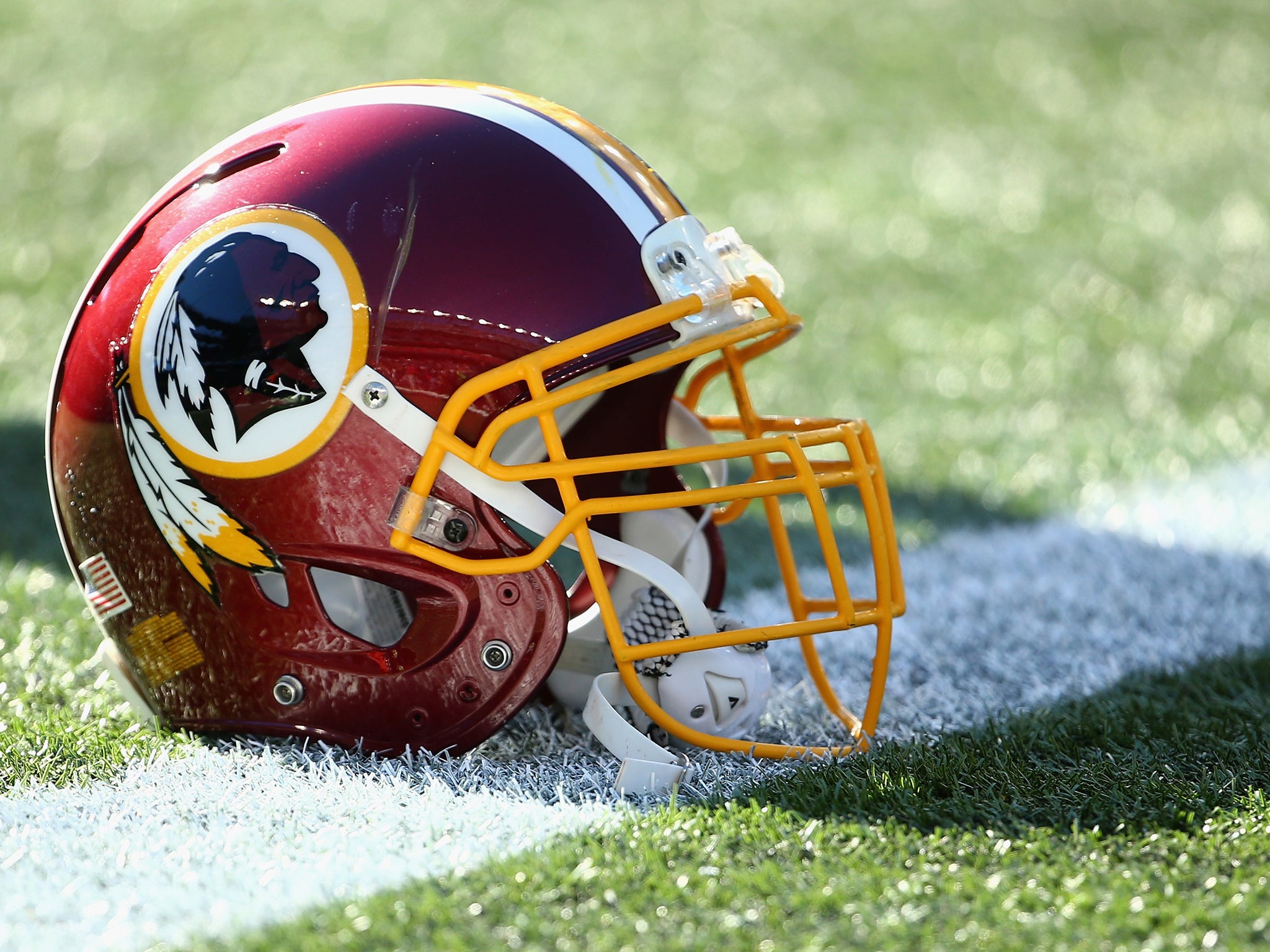Dear white people, stop telling Native Americans like me whether we're offended by the Washington Redskins
My tribe doesn’t identify as 'redskins' – this is a derogatory term coined by colonialists often historically used interchangeably with 'savages'

Your support helps us to tell the story
From reproductive rights to climate change to Big Tech, The Independent is on the ground when the story is developing. Whether it's investigating the financials of Elon Musk's pro-Trump PAC or producing our latest documentary, 'The A Word', which shines a light on the American women fighting for reproductive rights, we know how important it is to parse out the facts from the messaging.
At such a critical moment in US history, we need reporters on the ground. Your donation allows us to keep sending journalists to speak to both sides of the story.
The Independent is trusted by Americans across the entire political spectrum. And unlike many other quality news outlets, we choose not to lock Americans out of our reporting and analysis with paywalls. We believe quality journalism should be available to everyone, paid for by those who can afford it.
Your support makes all the difference.This article was written in August 2019 but is being republished today due to recent news events and its continued relevance to those events
The Washington Post recently published an article which claimed that “the majority of Native Americans still aren’t offended by the name of Washington Redskins.” The article comes amid ongoing debate over whether the name of the US capital’s football team is racist.
Upon reading the poll’s findings, we quickly learn that the publication conducted this survey via phone with 500 “self-identified” Native Americans. The Post also profiled 12 of the participants who had various opinions on the mascot debate – with an emphasis on those who approve of the Washington Redskins. Curiously, the Post conducted this same survey in 2016.
Even if groups of self-identified Native Americans don’t find the term offensive, “redskins” is still racist on its face. Of the 12 profiled by WaPo, there was at least one authentic Native pointing to the fact that Natives often use the term “skins” to describe one another. This is similar to black communities reclaiming the n-word, but, likewise, not every Native person uses this word.
Should a team representing the capital of the United States really be embracing a racial slur? Washington DC is the historic gathering place for calls to action and protest centre of policy in America. The dictionary defines the term “redskins” as a racial slur, which should shut down any debate. Several Native organizations and tribes have petitioned the Washington Redskins to change their name.
Growing up on the Northern Cheyenne reservation in Montana, I wasn’t removed from my culture and community. Being rooted in heritage meant my education started with elders passing on oral history, including language used to dehumanize our ancestors. My tribe doesn’t identify as “redskins”. This is a derogatory term coined by colonialists often historically used interchangeably with “savages”.
Racism runs rampant in towns and cities neighbouring large Indigenous populations. I’ve been told to “go back to the reservation” and asked by white people to search for their stolen items on the reservation. The drunk Indian trope permeates majority-white towns and cities where Natives live in poverty. Plains Indians have also faced slurs such as “prairie n-words” and our women referred to using the derogatory term “squaw.”
I come from the proud Northern Cheyenne tribe who along with allies defeated Custer at the Battle of the Little Bighorn. We’ve refused to sell our resources. Our flag is simple, but powerful. My ancestors rejected forced migration south and were captured and imprisoned by the US Army in Fort Robinson, Nebraska. They broke out of their barracks and returned to their ancestral homelands. Each year, the Northern Cheyenne conduct a spiritual run that begins with breaking out of the same barracks and ends with ceremonies upon returning home.
Resistance literally runs through our veins. Our schools feature mascots such as Braves, Warriors, and Indians. Absent are the caricatures of mainstream Washington Redskin fandom. We don’t partake in the “tomahawk chop” or reduce heritage to stereotypical chants. Our events usually involve our cultural singing and traditions. We don’t act a fool in headdresses—those are sacred symbols with meaning.
Many sports events in my community are actually carried out according to Northern Cheyenne tradition and incorporate respect for elders. Dialogue among “self-identified” Natives not associated with their heritage or community often overlooks key aspects to understanding history. It also lacks the lived experience.
We don’t need polls to ascertain that racial slurs are offensive. We don’t even need to compare them to “the n-word” to illustrate they’re plain wrong. What is the point of polls on the topic? They discredit work Indigenous activists have done championing for change and progression. Polls also erase Native voices who continue speaking out using the hashtag #NotYourMascot. Washington DC is supposed to be a progressive and tolerant city, yet this issue comes up for rigorous debate every few years.
While other organizations in the United States have listened to Native activists and gotten rid of offensive mascot names, a sports team representing our nation’s capitol proudly flies racism. Hiding behind “self-identified” Native Americans urging nations deeply rooted in community to get over it represents everything that is Washington DC. Not just in the era of Trump, either. We still have a lot of work to do.
Join our commenting forum
Join thought-provoking conversations, follow other Independent readers and see their replies
Comments